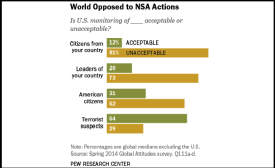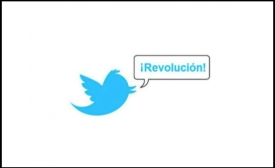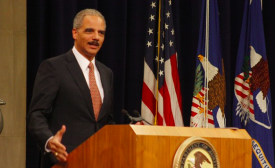snowden
In the past decade, the United States has accused China of all sorts of aggressive actions in cyberspace against American companies and government agencies. Most often, they involve theft of intellectual properties in high-tech industries. But the revelations by US National Security Agency leaker Edward Snowden about pervasive cybersurveillance and spying against both foreigners and American citizens completely knocked the wind out of Washington's diplomatic onslaught.

How the world views the U.S., China, and the competition between the two major rivals.

Professor Robert Albro on the intersections between diplomacy, technology, and social media.
Most often associated with Alec Ross’s stint at the State Department as Senior Advisor for Innovation, diplomacy’s rush to better leverage the advantages of social media and mobile technologies by investing in ediplomacy and PD 2.0 is no secret. On his first day as new Under Secretary for Public Diplomacy and Public Affairs last February, Richard Stengel made his position clear: social media are “transformational tools” and the State Department needs to move toward a “digital-first strategy.” Ambassadors now tweet regularly.

The heated debate surrounding NSA leaker Edward Snowden usually revolves around two extreme positions: Some consider him a hero and a whistle-blower worthy of clemency, while others consider his acts treasonous and believe he should be subject to the harshest punishment in our penal system.
Ironically, that very same penal system makes getting Snowden back to the United States nearly impossible.







